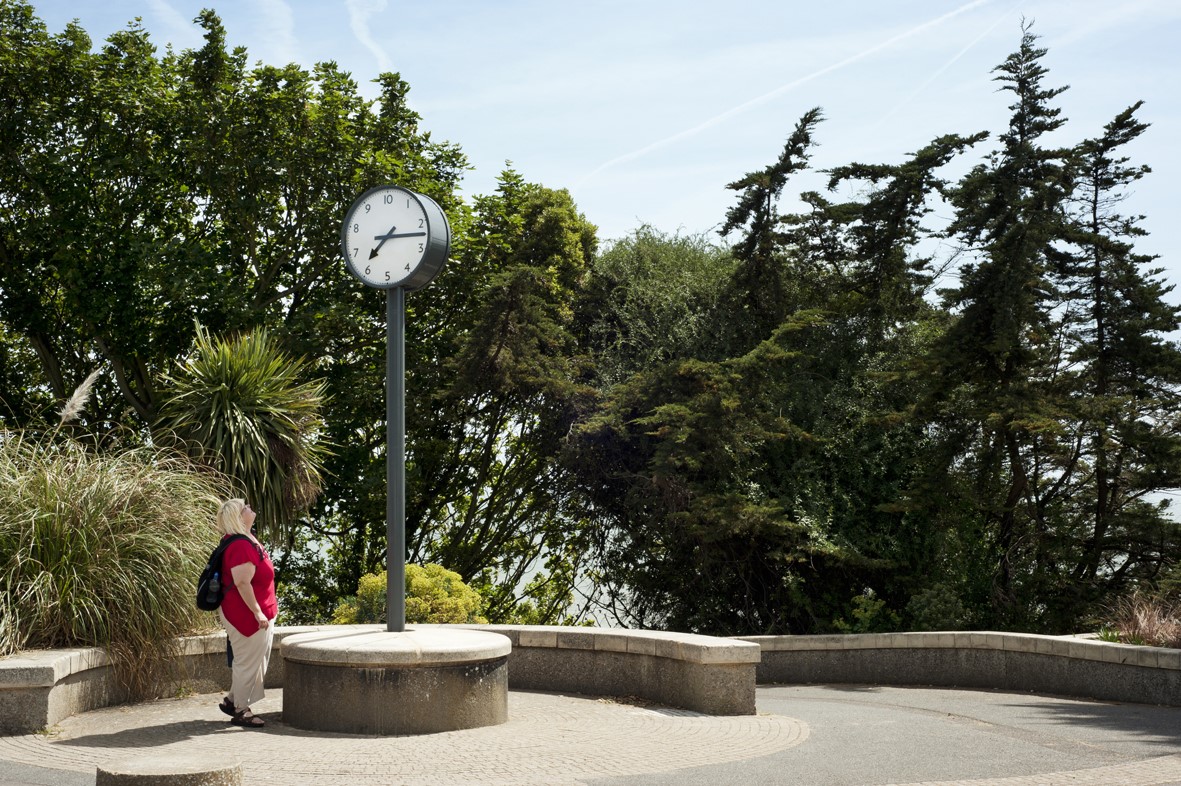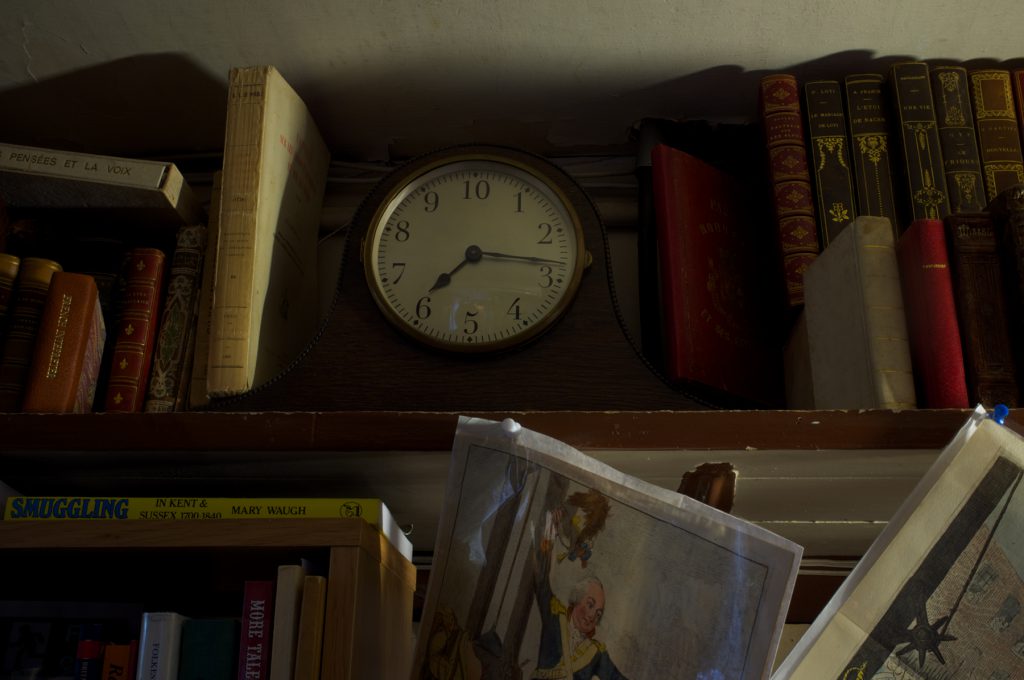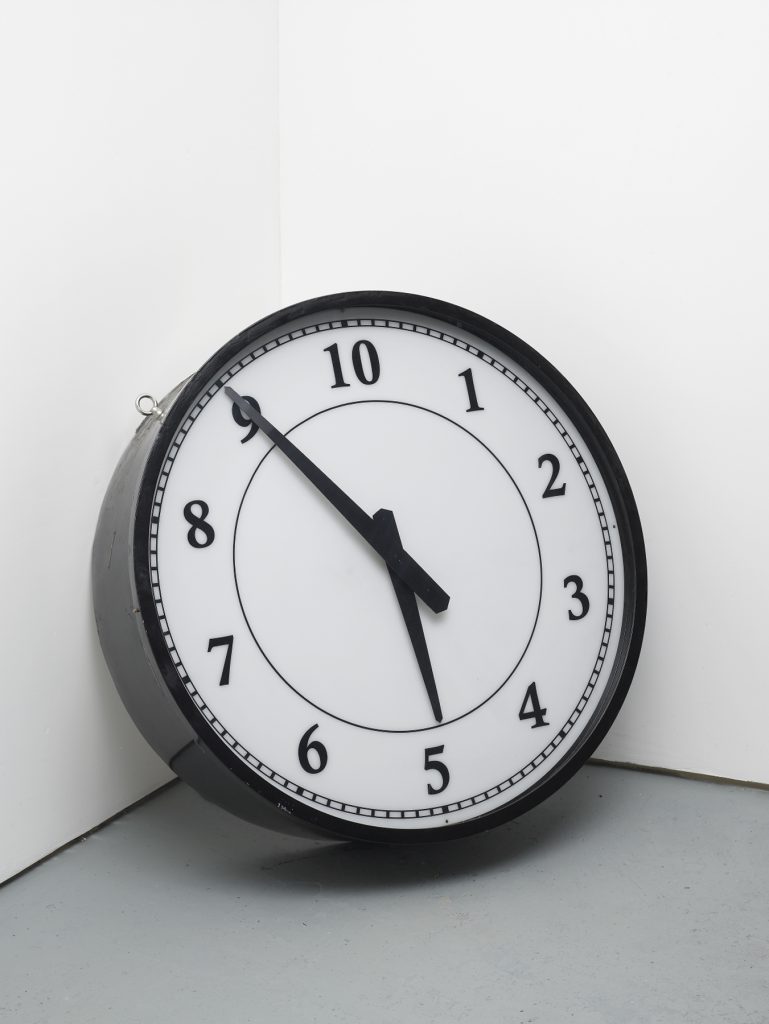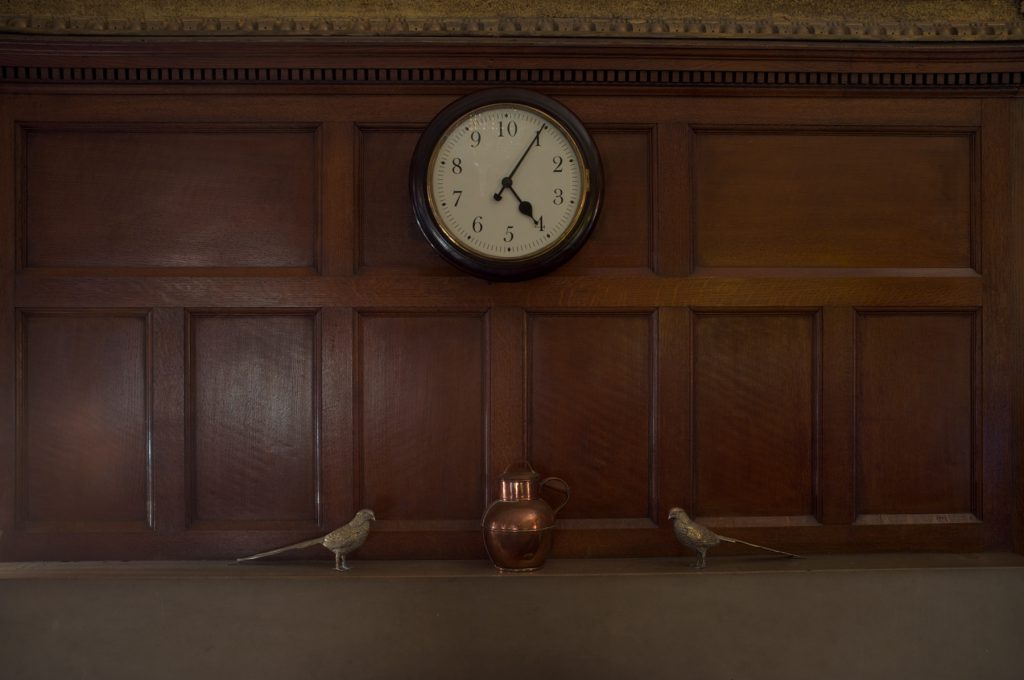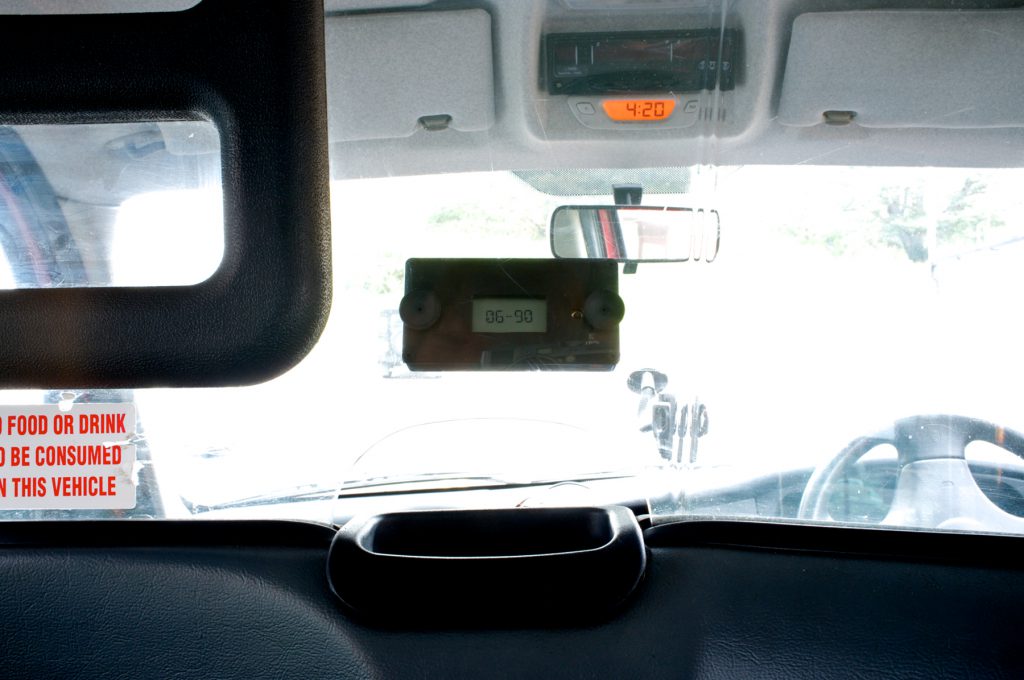Series of decimal clocks, 2011
COMMISSIONED as part of the second Folkestone Triennial , We Could Have Been Anything That We Wanted to Be saw the installation of ten decimal clocks around the seaside town of Folkestone, Kent. The clocks display decimal time dividing the day into ten periods rather than twenty-four. Midnight becomes ten o’clock, midday becomes five o’clock, each new hour contains one hundred minutes and each new minute contains one hundred seconds.
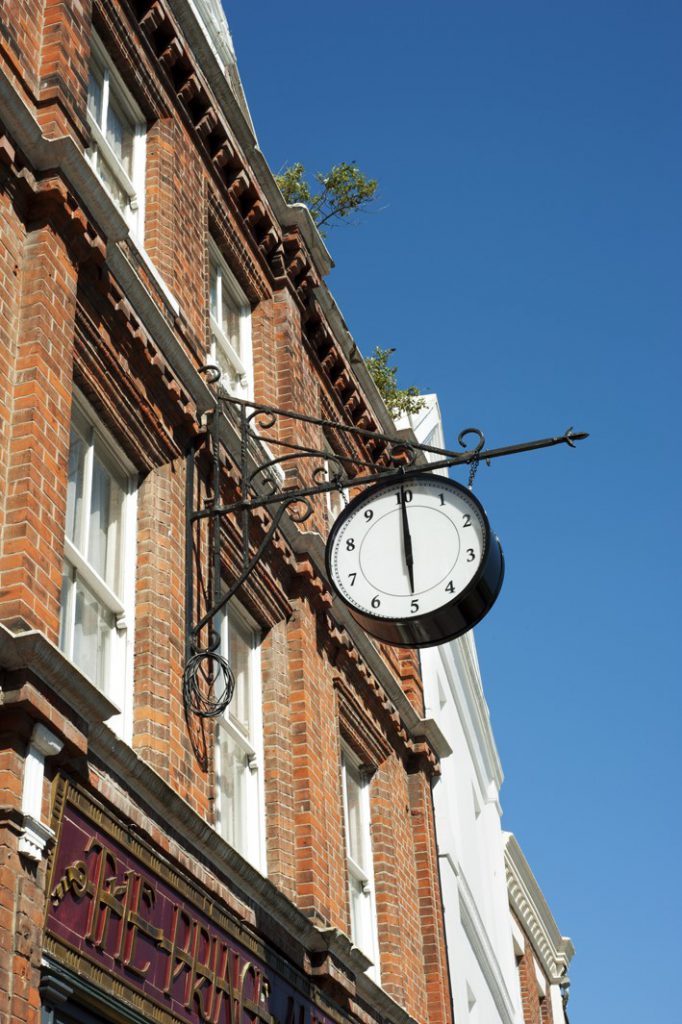
This decimal regulation is not a new idea. The ten clocks are a small echo of a bold historic attempt to redefine and rationalise the day. On 5 October, 1793 the recently formed Republic of France abandoned the widely used Gregorian Calendar in favor of an entirely new model – The French Republican Calendar, which became the official calendar of France for the following thirteen years, carrying the ideals of the new republic directly into the lives of every citizen. As the ancien regime was ripped up and reordered, time itself was dismantled. Just a couple of miles across the channel, France temporarily drummed to a different modern rhythm – that of the decimal second.
An artist’s book was produced detailing the project which features an essay by Astrid Johnston and was designed by The 2 Group.
